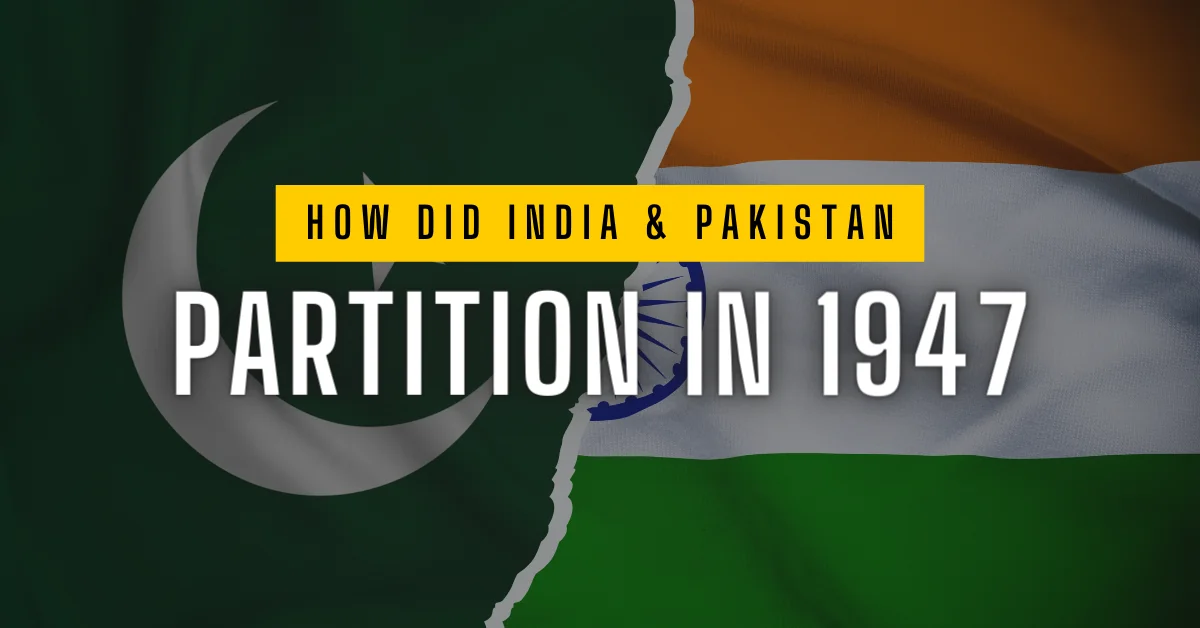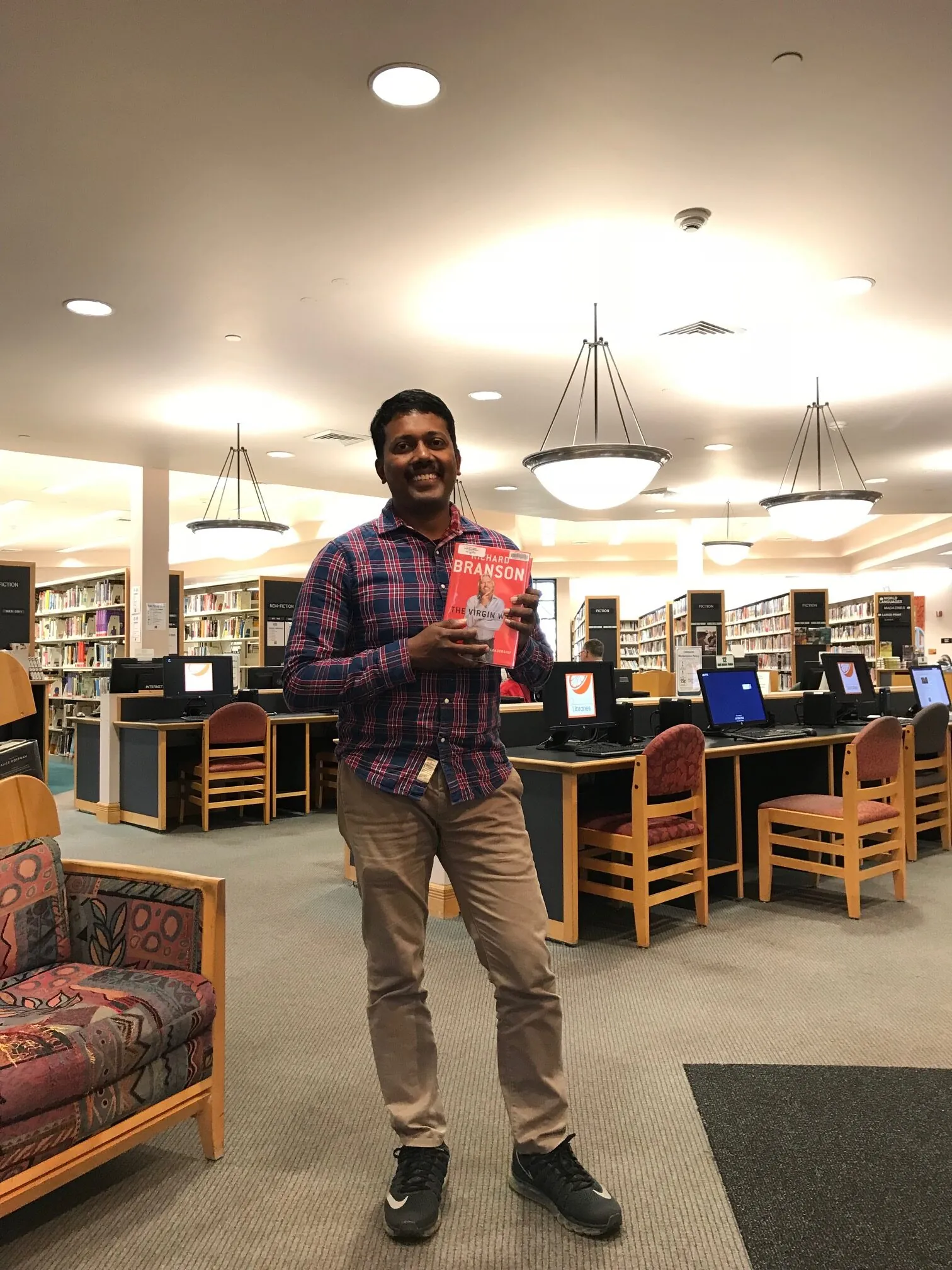How did India & Pakistan Partition in 1947
On visiting the Chennai Book Fair this year (Jan 6 to Jan 22’ 2023), prior to entering the Fair there were a lot of roadside shops and they were selling used books for cheap. One of them was a book on Jinnah (Jinnah: India-Partition Independence) and was curious. I decided to pick it up. This book was written by Jaswant Singh (The Former Minister Of External Affairs, Finance, and Defense at various times) and he looks at it from an Indian perspective.
Though I did not complete the entire book, I decided to document the last two chapters which was very interesting (just to understand what really happened in 1947 – How did the partition happen). Below are excerpts from the book as written by Jaswanth Singh and have also added some of my thoughts. Please note that the views expressed here are notes from Jaswanth Singh’s book Jinnah. This book was initially banned in Gujarat (State in India) and it was later reinstated by the Gujarat High Court. Also, these may or may not be historical facts and I have not done a comparative study of books and articles on the partition of India. Let’s get to the book now.
India was one nation prior to 1947 and Jinnah was an advocate of India Muslim Unity. At the start of the book, Jaswant Singh discusses the origin of Muslims in India. This was mostly caused by the invasion of Islamic leaders. The Muslim population in India slowly began to spread. However, Jaswant Singh wondered why India should be partitioned based on religion. He quotes the British. When the British invaded India, we called it a British Invasion and not a Christian invasion. Then why would you partition a country based on religion? The British rulers capitalize on the tensions between the Hindus and Muslims.
1857: The Indian Rebellion of 1857 was a major uprising in India in 1857–58 against the rule of the British East India Company.
Two prominent people in the 1800s:
Sir Sayyid Ahmad Khan is the most prominent name associated with the Aligarh Movement. He sided with the British and also sowed the seeds for a separate Muslim state. Sayyid Jamal ad-Din al-Afghani (1839 to 97) visited India around 1855-56 and was impressed by what he saw. He believed that Language was a better uniting force than religion. He also advocated that everyone learn the national language. He stood for linguistic unity instead of religious unity. Jinnah was able to use his political acumen to exploit the mistakes of the Congress party from the 1930’s.
The Last Two Chapters:
Pages: 428 to 525:Mountbatten – The end of the Raj
23 March 1947 to 15 August 1947
Lord Mountbatten began having meetings with Indian Leaders. The first meeting was held on April 1, 1947, when he met with Mahatma Gandhi. It is in this meeting that Gandhi made a proposal for Jinnah to be the Prime Minister of United India. Gandhi suggested that a Congress Muslim be nominated to the Government and the vast majority of Muslims were represented by the Muslim League. His proposal was rejected by the Congress and Gandhi incorrectly assumed that Pandit Nehru and Patel would agree to what he said. Jinnah emphasized that not just Gandhi, but even his signatures were valueless.
Who drew the boundaries of India and Pakistan?
Cyril John Radcliffe (1899 to 1977) was tasked with the responsibility of drawing the boundary between India and Pakistan. It was done in haste as the date of Independence was fixed as August 15, 1947. It was also the first time Cyril even visited India. For Cyril, India was an alien land and he had no idea of the great diversity of the country, geography, culture, and languages. There were also talks on getting assistance from the United Nations with respect to the boundaries. However, there was also stiff opposition including Nehru as it would delay the date of Independence. However, the same Nehru later as Prime Minister of India volunteered the referendum on the J&K issue to the United Nations. The Congress also initially objected to the Radcliffe appointment, However, it was accepted it. The bigger question that arises is that if we divided India to reduce the communal tensions, the principal issue still remains today and then why did we even divide? (This is asked by Jaswanth Singh).
Why hurry in India’s Independence?
Sir Evan Jenkins the then Governor of Punjab feared the worst and wrote in his report on 11th July 1947 that it was impossible to do a clean job with respect to the partition of India within the available time. However, his counsel was not accepted and Mountbatten’s entire strategy was to rush through it without giving anyone time to think it through. Another prominent leader discussed is Maulana Azad (first Education Minister of India) who wrote ‘Why was there such a hurry in taking such a decision which almost everyone regarded as wrong’. If things could not be done by a date why not wait until a correct solution is found?
India and Pakistan:
Pakistan came into being on August 14 1947 and India on August 15, 1947. Neither of these two countries knew what their borders were then, where was the dividing line where Hindus and Muslims should now separate? It was finally published on August 17, 1947, and as predicted had disastrous consequences. The Radcliffe line turned out to be tragically wrong and resulted in unending troubles. Mountbatten was convinced that partition of India on communal lines was inevitable. Maulana Azad and several others blamed Nehru and Patel for this. It is also fair to remember that Congress had passed resolutions in 1934, 1942, 1945, and March 1947 directly or indirectly conceding Pakistan. Gandhi and Nehru also referred to partition contingency as a very possible one.
Jaswanth Singh writes that Jinnah united the Muslims of Bengal and Punjab demanding Pakistan. There was no other Muslim Leader who could have attempted to do so. The creation of Pakistan was not a historic trend but the determination of a single individual (Jinnah). Without Jinnah, there would be no Pakistan.
It is surprising how the Indian National Congress did not oppose the partition and yielded to the political initiative in 1939. B.R. Nanda in his essay ‘Nehru, the Indian National Congress and the Partition of India, 1935-47’ mentioned that Nehru and Patel agreed to the Partition of India because they were avid for Power.
AICC meet – 14-15 June 1947:
A special meeting of AICC was called in Delhi on 14th and 15th June 1947 to adopt a resolution accepting Mountbatten plan of partition as announced on 3rd June. Chothram Gidwani from Sindh criticized the partition as an abject surrender to the blackmailing tactings and violence resorted to by the Muslim League under Jinah. Purshotamadas Tandon firmly stood against the resolution till the very end. He spoke at the AICC meet and said that Partition was an act of Betrayal and Surrender. There was loud applause that greeted Tandon’s speech. Maulana Azad did not speak a word. In Lohia’s own words – barring Jayaprakash Narayanan , Adbul Gaffar Khan, and Mahatma Gandhi none spoke a single word in opposition to the partition. Acharya Kripalani was the Congress President during this time and was a pathetic figure in these meetings. Gandhi intervened during the AICC effectively and got the partition resolution passed. He said that maintaining peace in the country is essential at this current juncture. Congress has opposed Pakistan and even I have opposed it. However, now I urge for its acceptance. Sometimes, certain decisions, however unpalatable, have to be taken.
Jinnah to Karachi:
On 7th August 1947, Mohammed Ali Jinnah left Delhi to go to Karachi and he never returned to India. The next day Patel then said in the Constituent Assembly in Delhi – The poison has been removed from the body of India’ He also said that as far as the Muslims, they have their roots, their sacred places, and their centers here. I do not know what they can possibly do in Pakistan. It will not be long before they return. This voice of returning to India became a challenge for Pakistan and to remain as Pakistan became the overriding objective of the country.
Why was August 15, 1947, chosen as the date of Independence?
There was no specific reason for this date. The transfer of power was brought forward from June 1948 to October 1947 and then to August 15, 1947. A book on Mountbatten reports him as having told its authors- The date I chose came out of the blue’. It was also the second anniversary of Japan’s surrender.
Pandit Nehru on the Partition:
Pandit Nehru told Michael Brecher his biographer in 1956 the reasons for accepting the partition of India. Nehru said that a larger India would have constant troubles, and constant disintegration pulls. There was no other way of getting freedom in the near future. As R.C Majumdar comments – Pandit Nehru came closer to the truth in a conversation with Mosely in 1960 when he said ‘ The Truth is that we were tired men…few of us could stand the prospect of going to prison again…and if we stood for United India, prison waited us…we saw the fires in the Punjab and heard everyday of the killings, The partition offered a way out and we took it. Nehru also added the partition was temporary and Pakistan was bound to come back to us.
Jinnah Leaves India:
Quaid-e-Azam (meaning: Great Leader) Jinnah left India for Karachi on August 7, 1947 and never returned. However, it is unfortunate that he passed away within thirteen months of the creation of Pakistan. Two great leaders in India’s freedom struggle died within months of each other (Gandhi – on January 30, 1948, and Jinnah on September 11, 1948). State mourning was announced in Delhi on Jinnah’s passing. Khwaja Nazimuddin succeeded Jinnah in a peaceful manner. After Jinnah’s death, Pakistan lost its focus.
The advent of Muslims in India (Hindustan) began in the seventh century. Muslims have never been in a numerical majority in India. However, in spite of the partition in 1947, the central problem between Hindus and Muslims still exists. Bangladesh (a further split from Pakistan based on Bengali Muslims) came into being in 1971. In view of all this, Jaswanth Singh in his book asks why India was partitioned in 1947. Jaswanth Singh asks, How are Muslims a separate nation?” In a way, all of this is only a little over 100 years old (1906 – Simla Delegation). Jinnah himself had started his political life as an early champion of the Hindu Muslim Unity. Pakistan was created as a country, however it did not know how to go forward. Pandit Nehru post the partition said that the partition was unfortunate and that ultimately India and Pakistan will come close together, the alternative is war. According to Jaswanth Singh Mohammed Ali Jinnah was fundamentally in error proposing Muslims as a separate nation. The partition also made Pakistan start life with administrative disadvantages. India in a way was well prepared to take on the challenges ahead, a functioning administrative structure, and more. When the dream of Pakistan became a reality, no one was prepared for it. E.g Pakistan produced 3/4th of the world’s Jute, however, post the partition all the processing mills were in India.
Issues of Global Concern:
What was a domestic difference between two communities (Hindu and Muslim) got internationalized on 14th and 15th August 1947 and became an issue of global concern and got converted into an India – Pakistan Issue. India was divided by a swift massive surgical cut. Though we withstood many onslaughts through the centuries we finally got vivisected by ourselves when we acted in concert with an alien power. Punjab remains Punjab in India and Pakistan, and so does Bengal.
Limited Powers for the Center:
Maulana Azad (First Minister of Education in the Indian government post-Independence) wrote in his memoirs that the Indian Federation should deal with just three subjects – 1. Defense, 2. Foreign Affairs and 3. Communications and grants maximum possible autonomy to provinces. He suggested the Centre have very limited powers. Post Independence, the most powerful Institution in Pakistan was the army and it has remained that way till today.
My take:
I enjoyed getting to read a good part of this book (especially the last two chapters). In a way, it is also similar to the politics that happens today (e.g. AICC meet). A significant event in India’s history happened and it could have also been avoided. I also found it very interesting how India was divided randomly without a clear vision. Pakistan was clearly at a disadvantage post the division as it lacked all the administration. It is also unfortunate that Jinnah passed away in a year from Independence. Not sure how things would have been different if he was alive. There are a lot of ifs and buts. Only time will tell. Looking at where things stand today, Pakistan still has a long way to go. In a way, if you think about it, whether we like it or not, the stable leadership or certainty provided by Pandit Nehru post-Independence has helped India in a way (which was clearly missing in Pakistan). Could the partition have been avoided? Yes. It could have been avoided. It will be interesting to see what happens a few hundred years from now.
Thank you for reading.




Leave a Reply